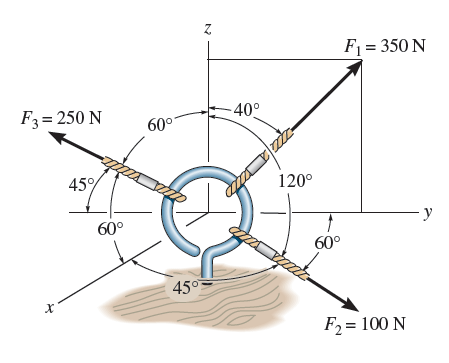An eyebolt can be an important piece of hardware in different industries. In the general sense, an eyebolt is a fastener with a threaded shaft. There’s then a head that creates a ring. An eyebolt can be used to attach an eye to a structure with something like a cable or rope. You can also use a lifting eye so a crane can then attach to machinery.
Choosing the right tools and components is an important part of creating quality work and also productivity, and the following are some of the specific things to know about eyebolts.
The Design
This was briefly touched on, but an eyebolt is a piece of hardware frequently used in material handling, with a relatively simple design. The design features the threaded shank or shaft and then a ring or eye at one end.
You can attach an eyebolt to wood or steel after it’s threaded, and often a nut is used to support it.
Then, you can use a rope or cable to lift objects.
In one design, a ring might be drop forged, meaning one piece with a fully closed eye. The eye can also be bent, creating a loop.
Bent eye bolts are intended for light-duty jobs, and they shouldn’t be used for any kind of angular lift.
An eyebolt will usually be made from steel or stainless steel, with steel typically being the strong option.
Certain eyebolts are rated with what’s called a load capacity. Breaking load refers to how much weight or force the particular part can take before failure. Working load is the max load that can be applied under normal working situations.
The safety factor is the ratio between the breaking and working load.
Types of Eyebolts
There are actually a couple of different types of eyebolts.
First, there’s what’s called a plain pattern eyebolt, which has a threaded shaft with a direct connection to the eye. This design has a low profile but, it can’t be used with angular loads.
A shoulder eyebolt design has a section that’s reinforced between the shaft and the eye loop, strengthening it. This minimizes the possibility of shearing, so this type of eyebolt can be used for a load that’s not aligned with the shaft.
How Are Eyebolts Used?
The primary uses for eyebolts are for lifting and securing. You can connect them and then handle a load that’s being lifted. A spreader bar can assist with load angles so that a load has an even dispersal at the correct angle for the specific eyebolt.
An eyebolt has to be fully screwed in for the maximum load capacity, or it can break even if you’re using it for a lighter load.
Some of the specific uses for eyebolts are:
- In homes, they can be used for something as simple as hanging something on a wall.
- In industrial applications, eyebolts can be used for lifting and tensioning, but this requires a larger eyebolt.
- Stainless steel eyebolts can be used in welding, particularly in places with harsh climates.
- Adding a tie-down for a trailer, truck, boat, or another type of vehicle.
- Creating a connection for rigging in industrial and construction applications.
Materials Used to Make Eyebolts
There are a couple of different materials used to make eyebolts. The most common is stainless steel, which is corrosion-resistant and works well for anything where a lot of demand will be placed on the part.
There are a couple of different grades of stainless steel, including 304, which is most common.
For saltwater applications, there’s 316 grade.
Another option is a galvanized eyebolt. With galvanization, a zinc coating is added, which protects the metal of the eyebolt from oxidization and corrosion.
Specialized Types of Eyebolts
The special eyebolts that are available include:
- Anchor eyebolts are used for fastening into masonry.
- Screw eyes can be used instead of a machine screw and can be used for hanging frames and curtain wire.
- A ring bolt can reduce the force on an eyebolt, and it’s something that passes through the head and forms two links.
- An eye nut is a nut that has the same purpose as an eyebolt.
- A pigtail eyebolt is one that’s created from a bar with the ability to thread rope into the eye through the middle, without access to the end.
You can have custom eyebolts made for your project as well, with your specifications using engineering and 3D prototyping.
